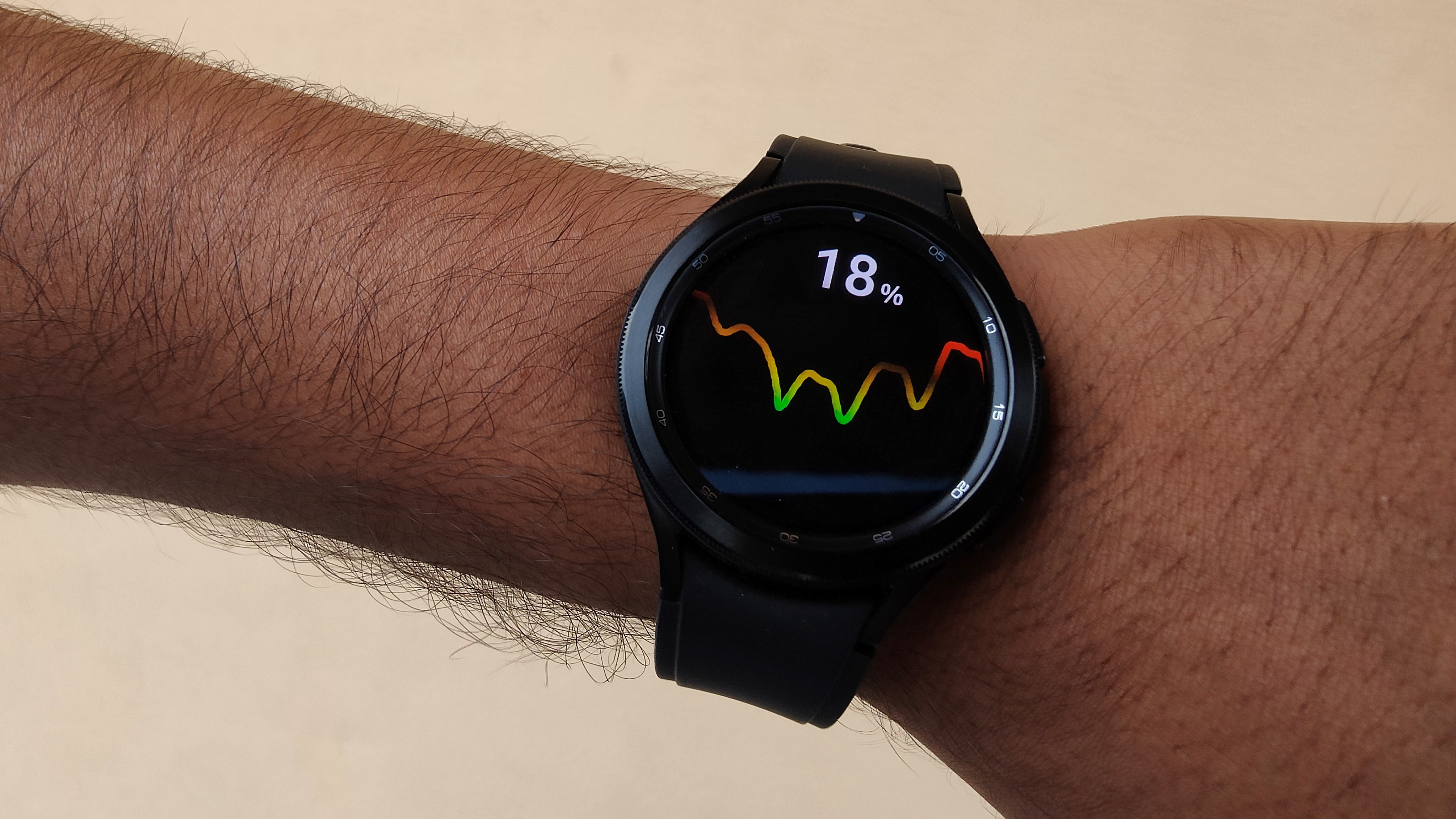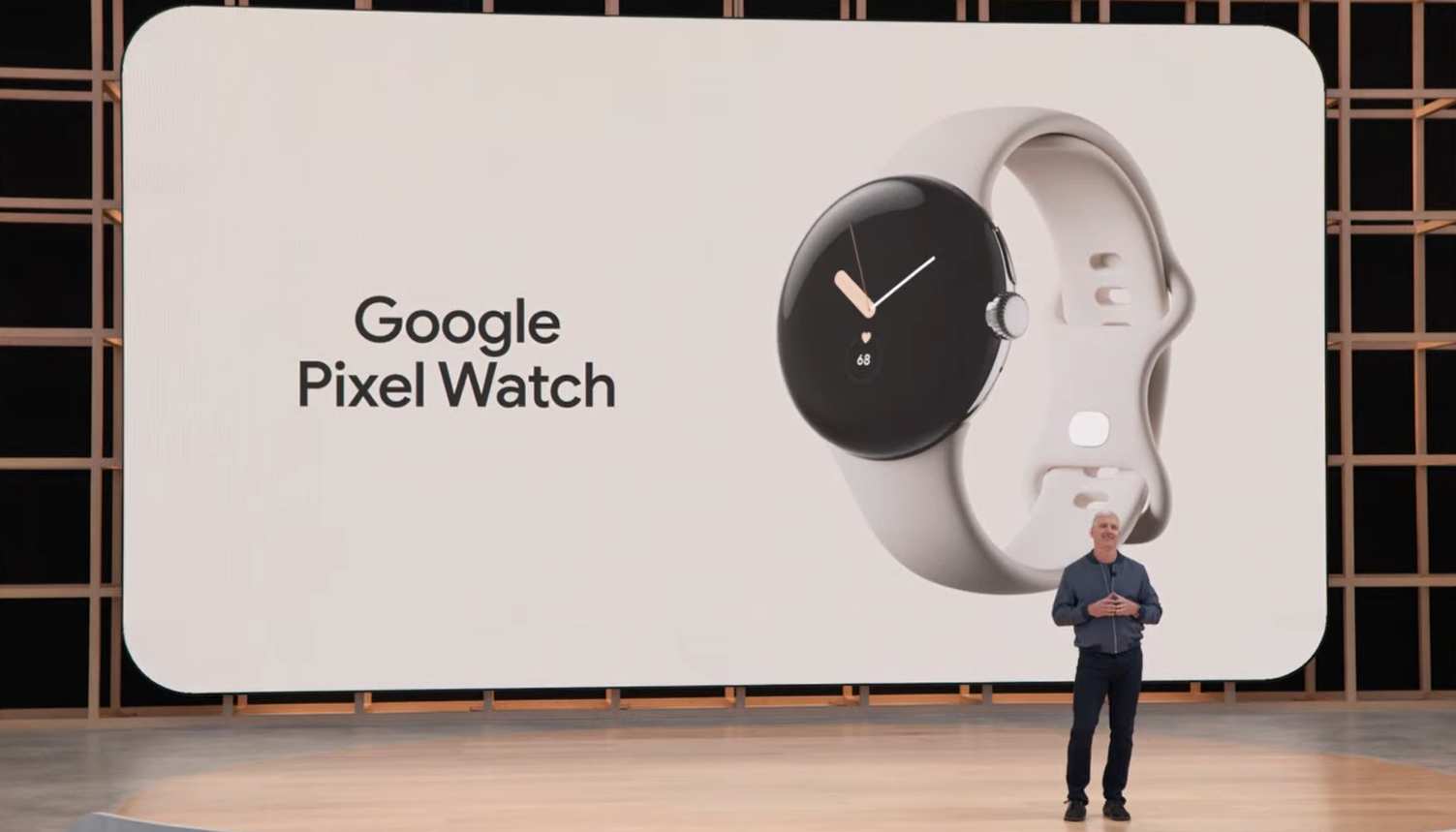Will the Samsung Galaxy Watch 5 make Fitbit's smartwatches obsolete?
Our first look at WearOS Fitbit Integration

The Samsung Galaxy Watch 5 is all but confirmed to drop on August 10, during Samsung’s keynote Galaxy Unpacked presentation next month. Launching alongside Samsung’s newest foldable smartphones the Galaxy Watch 5, like its predecessor, is sure to come stuffed with features and be running, like its predecessor, a combination of WearOS and the next iteration of its own One UI Watch skin.
With this in mind, the Samsung Galaxy Watch 5 is likely to make use of one of WearOS’ most anticipated features. Everyone knows this feature is on the way, but no one has any idea what it’ll look like. Samsung might beat the Pixel Watch to the punch, and be the first true WearOS smartwatch with Fitbit integration.
Since Google parent company Alphabet first began acquiring Fitbit, the idea of a WearOS watch running Fitbit features instead (or as well as) Google’s own Health and Fit apps has been much talked about. When the Pixel Watch was unveiled at this year’s Google IO keynote speech, “deep Fitbit integration” was promised, with the watch potentially acting just like a Fitbit tracker would; logging steps sleep, activity, and more within your Fitbit account.
It might not be able to link directly to your Fitbit account, however. Instead, it may get the information there via Health Connect, the health data sharing platform being pioneered as a joint effort by Google and Samsung. We covered Health Connect when it was first announced, arguing that everyone should pay a bit more attention and this was the beginning of a Google/Samsung fitness empire.
Using Health Connect, Samsung could record your sleep or activity data and send it to Health Connect, which would format this data in such a way that it’s able to be uploaded to your Fitbit account.

The Samsung Galaxy Watch 4 already had a highly advanced suite of fitness sensors, including a “3-in-1 BioActive Sensor” that enabled the watch to monitor heart rate, blood oxygen levels, and even body composition, although how accurately a watch can calculate that muscle-to-fat-to-bone ratio, I’m not sure. The best smart scales struggle to do so accurately. It also has an ECG scanner, which is present on most premium Fitbits now, and we can only imagine the watch’s ability to collect health data during exercise would improve between iterations.
The ability to collect the same data as a top-end Fitbit, and upload the information to your Fitbit account, while also having all the same capabilities of a high-end Samsung smartwatch, might make Fitbit’s smartwatch offerings somewhat obsolete. After all, why would you buy a somewhat basic smartwatch from Fitbit with its features as the USP anymore? The Galaxy Watch 5 and its future iterations, if these predictions are true, aren't likely to cost that much more than a Fitbit Sense, but could be far more powerful.
If this is the way Google and Samsung are planning to proceed with their own devices, Fitbit may as well return to solely producing slimmer trackers, as their “true” smartwatches will be outclassed by other devices capable of linking to the Fitbit ecosystem, and doing so much more besides. However, the predicted imminent launch of the Fitbit Versa 4 and Sense 2 just a month later, this coming September, tells us that’s unlikely to be the case.
We see three possible scenarios here: one, a price drop or freeze for the Fitbit Versa 4 and Sense 2, leaving the Samsung Galaxy Watch and Pixel Watch as the “premium Fitbit” devices. Two, the Versa 4 and Sense 2 represent Fitbit’s final smartwatch hurrah for a while, as the company returns to slender fitness trackers like the Fitbit Charge 5. Finally, option three is the Watch 5 doesn't actually come with the Health Connect platform, as the bridge between WearOS and Fitbit isn't quite ready yet.
Get daily insight, inspiration and deals in your inbox
Sign up for breaking news, reviews, opinion, top tech deals, and more.

Matt is TechRadar's expert on all things fitness, wellness and wearable tech.
A former staffer at Men's Health, he holds a Master's Degree in journalism from Cardiff and has written for brands like Runner's World, Women's Health, Men's Fitness, LiveScience and Fit&Well on everything fitness tech, exercise, nutrition and mental wellbeing.
Matt's a keen runner, ex-kickboxer, not averse to the odd yoga flow, and insists everyone should stretch every morning. When he’s not training or writing about health and fitness, he can be found reading doorstop-thick fantasy books with lots of fictional maps in them.